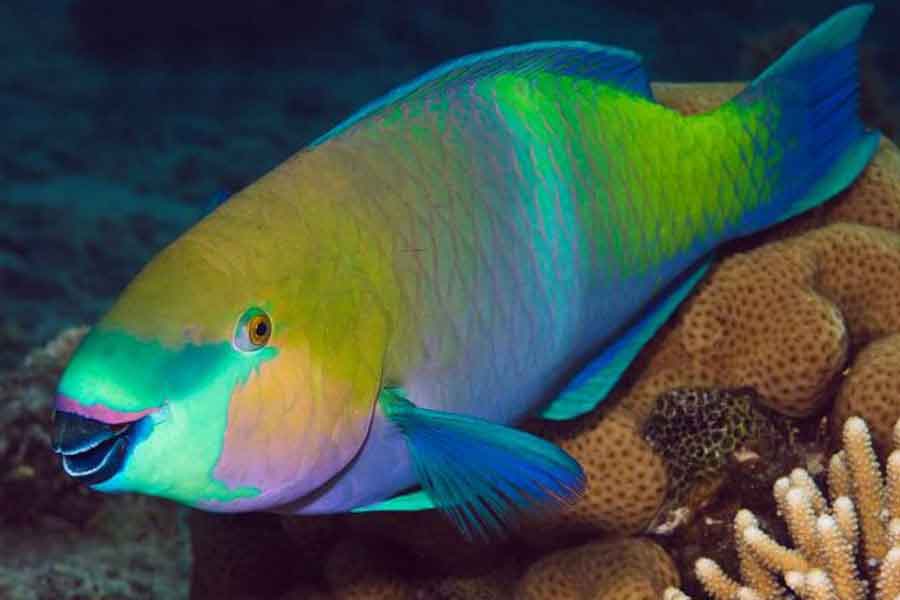
The evolution of marine species leads to various animals competing with each other for daily sustenance. While some have developed a violent offensive apparatus, attacking everything that moves in their path, others have specialized in defending themselves against such attacks. The priority lies in obtaining more food with minimal energy expenditure.
The parrotfish, also known as the parrotfish, has specialized in a feeding system that few have access to. It feeds on coral. Due to its sharp beak, similar to that of a parrot, it can bite off small pieces of hard coral like stone. However, since the pieces of coral cannot pass through its digestive tract intact, it solves this problem by chewing its tough food with a set of pharyngeal teeth located at the back of its throat. It is common for divers exploring the area to clearly hear the sound of the parrotfish breaking the coral as they feed.
After biting the calcareous rock and reducing it to powder, the parrotfish digests it after filtering out the sand. The amount of nutrients contained in each bite, the coral polyp, is so scarce that the animal has to constantly feed. However, the food/energy expenditure equation is favorable for the animal, as it does not need to move at high speed or make a great effort to find food. It simply grazes on immobile stone pastures along the reef. At night, it will sleep next to its food, covering its body with a thin mucus that it produces itself.
A single adult parrotfish, weighing about thirty kilograms, is capable of transforming about thirty tons of coral into fine white sand every year of its life. Parrotfish are responsible for the formation of ninety percent of the coral sand that makes up tropical beaches and bottoms. It is hard to believe, while standing on one of these paradisiacal beaches, that all that sand has been filtered through the digestive system of a fish.
«You cannot defend what you do not love, and you cannot love what you do not know.»

